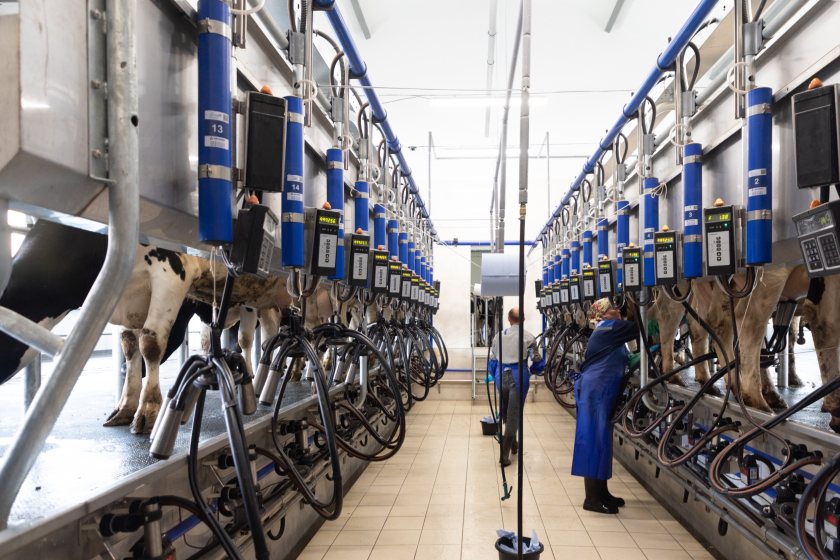
More than half of dairy farmers have warned that it is now harder to recruit staff than ever before, with some even considering leaving the sector due to the issue.
A survey of Arla Foods' 2,000 British farmers, released today (24 September), has highlighted the deepening challenges in the food and farming labour market.
The co-operative, which is Britain's biggest dairy company, said that more support was needed from the government to tackle the worsening issue.
More than half of dairy farmers surveyed (56%) said it was harder than ever to recruit, whilst 86% of farmers with vacancies said they had very few or no applicants with the right skills.
It found that on average, farmers were paying staff 27% more than they were at the end of 2019, before the pandemic and the end of free movement of people from the EU.
The pressure this is placing on the cost of food is considerable, with one-in-twelve farmers reporting that they were responding to these pressures by cutting production.
Looking forward, 16% of dairy producers said that without changes, they would consider leaving farming altogether.
David Christensen, a farmer who supplies Arla, said this had been a problem for a number of years, and it was getting worse.
"We need schools, parents and careers advisors all to recognise the benefits of working in the food and farming sector and to share them with young people.
"Because in the end it is people who will deliver a thriving food and farming sector that feeds the nation and contributes to the growth of our economy.”
Bas Padberg, managing director at Arla Foods, added that these developments were putting the UK’s food security under pressure.
“If we want our farmers to continue to put food on the table in millions of homes around the country they need help," he said.
"We’re calling on the government and industry to work together to bring people into our exciting sector, and then to give them the skills and equipment they need to be fully productive.
"What ministers have said already about driving growth and supporting training is positive; we now need to go further and faster.”
Across the wider supply chain, the biggest challenges include attracting qualified people with the right skillsets for the modern manufacturing environment.
There is also a problem with attracting more women and younger people into the industry as a career choice.
Arla has set out a list of asks for government, including to reduce administration on farmers by simplifying its own paperwork and to help support skills development and up-to-date portable qualifications.
The processor has written to the Defra Secretary Steve Reed and Prime Minister Sir Keir Starmer to invite them to back its proposals.
Fran Ball, vice president of production at Arla, said the challenges in recruiting suitably skilled people into the food supply chain was becoming increasingly harder.
"With advancements in technology and automation, we should be getting more efficient, but we still need the right people with the right skills if we want to have a workforce that is fit for the future.”
Arla has already launched a strategy across its supply chain to attract, retain and develop more positive gender representation.
But it said support was needed to help attract and promote food manufacturing as a career choice amongst a more diverse population.
To help this, the government must expedite changes to the Apprenticeship Levy to enable money to be used more easily for upskilling and training colleagues.
Reforms to careers advice in schools and to teaching more generally was needed to encourage pupils to consider working in manufacturing, engineering and food, Arla said.
